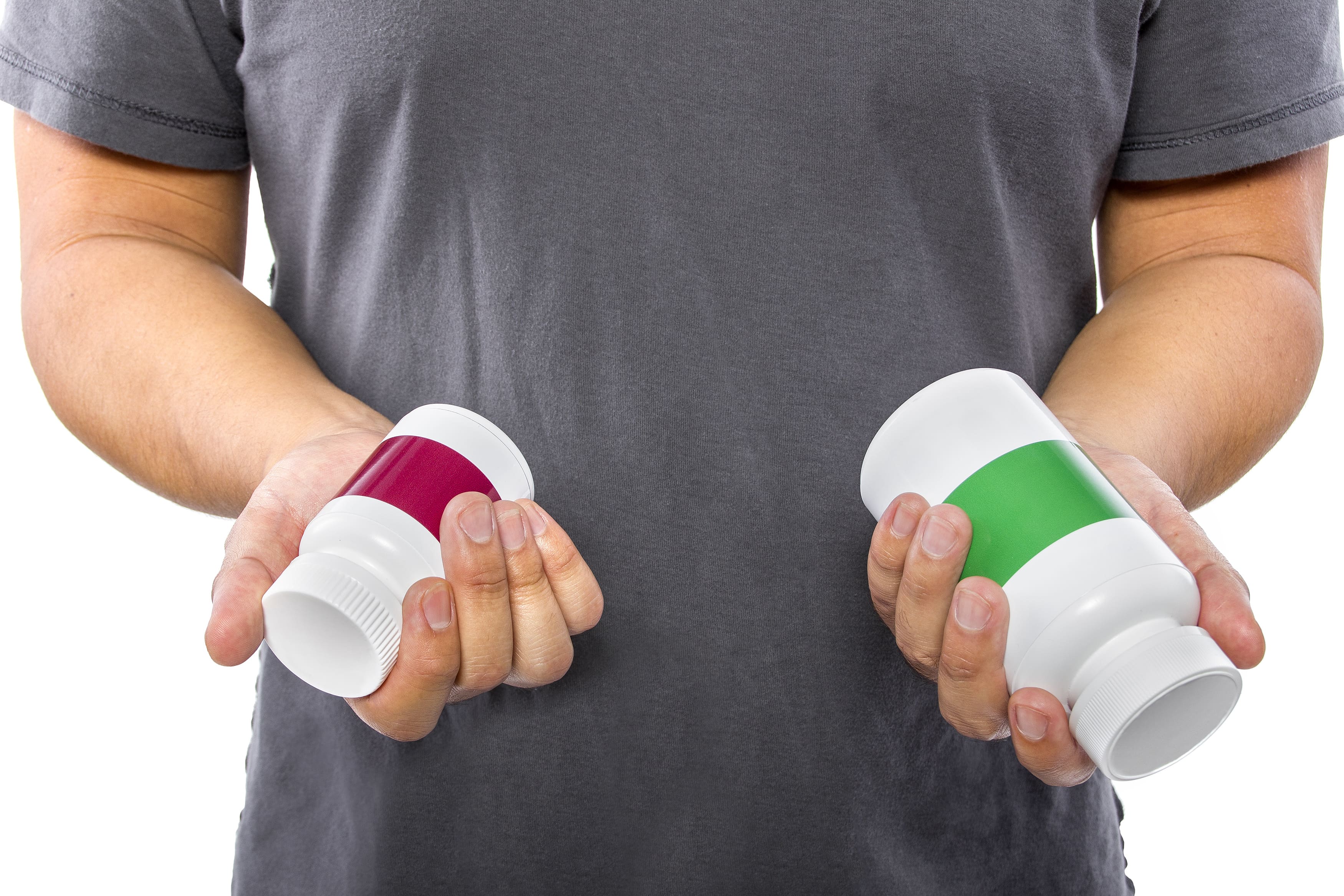The Difference Between Brand Name and Generic Drugs

The debate over generic vs. brand name drugs has been ongoing for decades, but they actually have more in common than you might think. Here is what you should know:
What is a brand name drug?
Essentially, a brand name drug is the first treatment of its kind to reach the market. By virtue of being the first, the drugmaker gets several privileges, including the opportunity to brand the name (see how that works?).
To reach this status, the medication must be approved by the FDA, which entails in-depth scrutinization of the drug’s research, development, manufacturing, packaging, and more. Once it earns approval, the brand name drug is issued a patent, which protects its formula from being duplicated by other manufacturers for up to 20 years.
What is a generic drug?
A generic drug is basically a copy of the brand name medication.
When the patent on the original expires, other manufacturers can apply to the FDA to sell versions of the medication under a generic name. For example, there are many sources of acetaminophen but only one Tylenol™.
In order to be approved by the FDA, the generic medication must match the same dosage form, safety, strength, quality, performance, and intended uses as the brand name version. The testing and production facilities also must meet the same quality standards.
Generic vs brand name drugs: what’s the difference?
The differences between generic and brand name drugs are subtle but significant:
- Generics must include the same active ingredient as their brand name counterpart but may include different inactive ingredients, such as preservatives, coloring or fillers.
- Differences between a generic and brand drug cannot affect the drug’s performance or effectiveness.
- Generics cost less than brand name medicines.
- Trademark laws prevent generic drugs from looking identical to the brand name drug, so their color and size may be different.
- Health plans may choose to cover only the generic or the brand name, not both.
Why do generics cost less?
Generic medications cost less than brand name ones because becoming the first drug on the market costs a lot of money. In fact, pharmaceutical companies may spend $2 billion on the development of a drug. The patent allows them years to recoup these costs through sales, and since it is the only drug of its kind on the shelves, the company has complete control over pricing.
Manufacturers of generic drugs don’t have to make the same investment. Because multiple generics can enter the market at once, there may be competition to drive prices down.
Which is better?
This is a complicated question and people have different views. Talk to your doctor about which medication is right for you and why.
America’s Pharmacy can help you save up to 80% on any medication, because cost shouldn’t be the deciding factor in your health. Our prescription discount card is accepted in over 62,000 pharmacies across the U.S.
Use our online search tool to compare prices for brand name and generic drugs and start saving money today!
